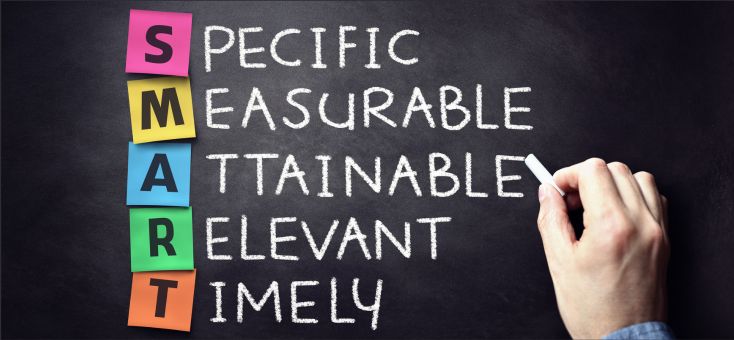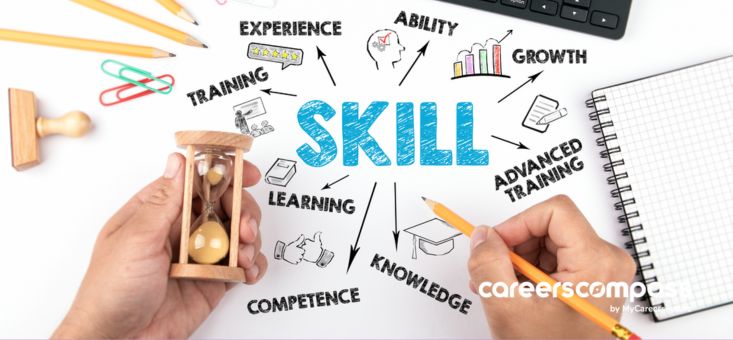If you think having a tonne of experience and fancy educational qualifications will make it easy for you to switch careers, you’re in for a surprise. As industries continue to evolve and transform, companies are shifting to skills-based hiring to fill new and emerging job roles.
The message is clear: Upskill yourself or find your career mobility hampered by your lack of skills. But this doesn’t mean that you should forgo your career aspirations, and merely shape your career journey around attaining in-demand skills.
In transitioning to a new career successfully, why not align your career goals with the right skills to up your chances of landing that dream job?
How to align your career aspirations with your skills development?
If you’re planning for a career switch, you may already have some career aspirations in mind. But when aligning your career goals with your skills, it’s important to take some time to reflect deeply on what you want to achieve in your professional life. This will provide clarity and direction as you embark on your skill development journey.
Career coach, Han Kok Kwang, recommends using the 4S Model by author and counsellor Nancy Schlossberg, as a way to reflect on your professional goals. The 4S Model includes Situation, Self, Support and Strategy, and acts as a guide to formulating relevant questions to ask yourself.
Here’s an example for career-switchers:
1. Situation
- What triggered your career change?
- Is it the right time for a career change?
- Is your changing role considered a gain or a loss?
2. Self
- What are your views on your life, such as socioeconomic status, gender, age, stage of life, state of health, and ethnicity?
- How do you see your ego development, outlook, commitments, and values?
3. Support
- Do you have a family that can support you if you fail?
- Do you have friends who are good influences and supporters of your career decision?
- Are there communities you can turn to for questions and insights?
4. Strategy
- What can be done to move things in your favour?
- What are the fixed variables in the situation?
- How will you deal with life after the career change?
How should I go about developing my professional skills?
If you’re currently thinking of developing your skills, the big question is: what are the in-demand skills that you should gun for? SkillsFuture Singapore (SSG) launched a Skills Demand for the Future Economy 2023/24 report, which will provide you valuable insights into the in-demand skills that will shape Singapore’s job landscape.
We’ve taken the liberty of distilling it into a bite-sized article here.
However, merely knowing the list of in-demand skills to have under your belt is not enough. You need a solid game plan.
Setting SMART goals
As the saying goes: failing to plan is planning to fail. On the other hand, having a plan that’s too big to execute or too small to make a significant impact is not going to do you any favours, either. Enter the SMART goals framework, which is designed to guide you to achieve your goals effectively.

SMART goals can be characterised by five criteria:
1. Specific
Identify the skill you want to develop and define what mastery looks like for that skill. For example, if you want to improve your public speaking skills, your specific goal could be to deliver a confident and engaging presentation to a large audience.
2. Measurable
Set concrete metrics or milestones to track your progress. For instance, you could aim to speak in front of a smaller audience first and then gradually increase the audience size.
3. Achievable
Be realistic about the time and resources you can invest in skill development. Setting unattainable goals may lead to frustration and demotivation.
4. Relevant
Make sure your goals are relevant to your career aspirations. Align your skill development efforts with the most valuable skills in your desired field or industry.
5. Time-based
Can you set a reasonable timeline for your goal and stick to it?
SMART goals can be set at any time throughout your career, whether as part of your growth within an industry (macro), at your current job (meso), or as a personal accomplishment (micro).
Utilising online resources

In today’s digital age, there is no excuse not to upskill. Online platforms have made it easier to learn on the go, at your own time, on your mobile phone or tablet. Search for reputable online learning platforms that offer courses in your desired skill area and provide certifications or recognised credentials to validate your newly acquired skills.
Below are some learning platforms that offer free online courses with certifications.
LinkedIn Learning
An on-demand library of instructional videos covering the latest business, technology and creative skills. It provides personalised course recommendations and is designed to help you achieve your full potential.
Google Digital Garage
A non-profit programme from Google delivering free digital skills training via an online learning platform. This platform provides individuals with a tailored training plan to learn digital skills completely for free.
MySkillsFuture
A one-stop portal for Singaporeans to upskill in their lifelong learning journey. Individuals can claim their SkillsFuture Credit, learn more about the latest skills in demand, and view more than 20,000 SkillsFuture Credit Eligible courses on the Course Directory.
Where can you get help for upskilling?
If you’re thinking of upskilling yourself to enhance your career or to make a mid-career switch but unsure of where to start, fret not. Workforce Singapore has an array of platforms specially designed to help you meet your career goals. Upskilling is extremely important so you can have the matching skills to your career goals.
CareersFinder
If you want to improve your career health, this MyCareersFuture feature is designed to help you better plan your upskilling and career journey through personalised jobs and skills recommendations.
Polaris
Think it’s time for some career planning? Polaris is your go-to programme tailored exclusively for you and designed to match your unique aspirations and ambitions. Sign up today!
CareersHorizon
Need help in kickstarting your job search journey? CareersHorizon equips you with the essential tools for an effective job search and prepares you for different employment scenarios. Explore now!















